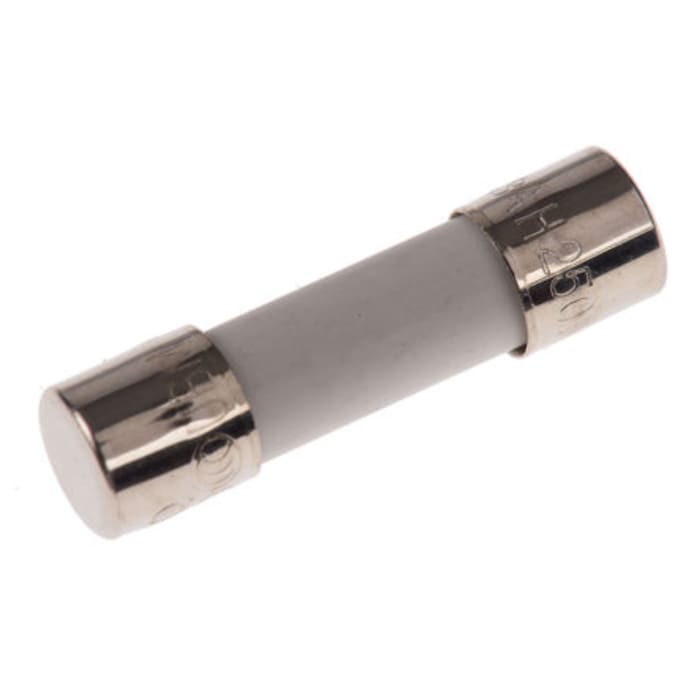RS PRO Cartridge Fuse

Technical documents
Specifications
Brand
RS ProProduct details
Quick Acting (F) HBC– Ceramic Fuses
Ceramic fuses are great for short-circuit protection of semiconductors such as thyristors, diodes and triacs. Available in a range of current ratings with varying resistance values, this range are reliable for a broad range of applications. Note that fuses with values greater than 6.3A using open type fuse holders is recommended, to reduce the risk of nuisance tripping at or near full rated current.
Why choose ceramic cartridge fuse?
Ceramic and glass cartridge fuses have similar properties. The capacity of a ceramic cartridge fuse is higher than other fuses such as a glass fuse. This means ceramic fuses can be used in circuits that have a higher current and are perfect for protecting against overheating.
What size is it?
Sizes 8 x 32 mm, 10x38 mm, 14x51 mm & 22x58 mm in both Class gL-gG and aM are also available with a built-in striker for micro-switch operation and remote indication. Class gL-gG and aM fuse links are intended for industrial applications. All industrial fuse links are available with an operated visible fuse indicator.
What is Breaking Capacity?
Breaking capacity is the level of current that the fuse can safely handle without exploding or breaking. The breaking capacity of your fuse should be greater than the fault current of your electronic circuit.
What are fuses used for?
• For the protection of components and equipment from costly damage used by over-current
• To isolate sub-systems from the main system once a fault has appeared
What is on overcurrent?
It is a setting where a circuit experiences a current that is higher than the normal operating current.
P.O.A.
1
P.O.A.
1
Stock information temporarily unavailable.
Please check again later.
Technical documents
Specifications
Brand
RS ProProduct details
Quick Acting (F) HBC– Ceramic Fuses
Ceramic fuses are great for short-circuit protection of semiconductors such as thyristors, diodes and triacs. Available in a range of current ratings with varying resistance values, this range are reliable for a broad range of applications. Note that fuses with values greater than 6.3A using open type fuse holders is recommended, to reduce the risk of nuisance tripping at or near full rated current.
Why choose ceramic cartridge fuse?
Ceramic and glass cartridge fuses have similar properties. The capacity of a ceramic cartridge fuse is higher than other fuses such as a glass fuse. This means ceramic fuses can be used in circuits that have a higher current and are perfect for protecting against overheating.
What size is it?
Sizes 8 x 32 mm, 10x38 mm, 14x51 mm & 22x58 mm in both Class gL-gG and aM are also available with a built-in striker for micro-switch operation and remote indication. Class gL-gG and aM fuse links are intended for industrial applications. All industrial fuse links are available with an operated visible fuse indicator.
What is Breaking Capacity?
Breaking capacity is the level of current that the fuse can safely handle without exploding or breaking. The breaking capacity of your fuse should be greater than the fault current of your electronic circuit.
What are fuses used for?
• For the protection of components and equipment from costly damage used by over-current
• To isolate sub-systems from the main system once a fault has appeared
What is on overcurrent?
It is a setting where a circuit experiences a current that is higher than the normal operating current.

